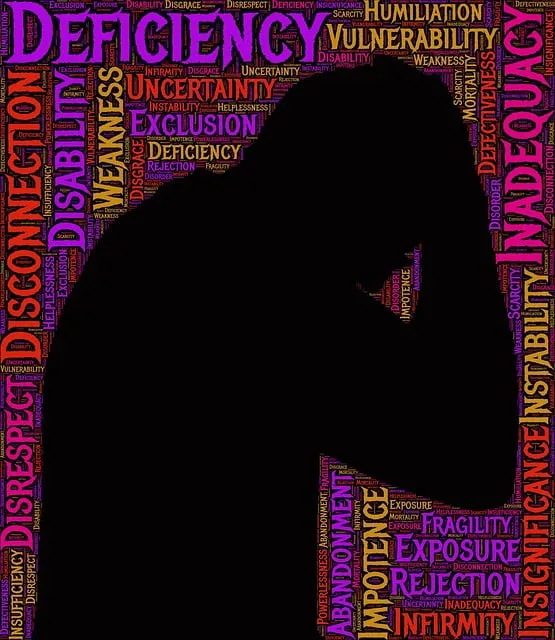Castle Rock Kaiser Permanente's mental health support system utilizes the RFM (Risk, Frequency, Severity) framework to identify and cater to individual needs, offering personalized interventions from therapy to community outreach. They integrate resilience-building exercises focusing on anxiety relief, self-esteem improvement, and social connection, empowering patients with tools for life's challenges. This tailored approach, guided by mind over matter principles and cultural sensitivity, enhances well-being, improves access to care, and strengthens patient-provider relationships, resulting in better mental health outcomes. The success of these initiatives is measured through qualitative and quantitative evaluations, ensuring continuous improvement based on evidence and expert guidelines.
“Resilience is a powerful tool in enhancing mental well-being, especially within the context of modern healthcare. This article explores the implementation of RFM (Resilience, Flexibility, and Mastery) exercises as an innovative approach to bolster mental health support systems. We delve into the case study of Castle Rock Kaiser Permanente, where these exercises were successfully integrated, and provide insights for mental health professionals on effective training programs. Additionally, we discuss strategies for clinical practice and methods to measure the impact of resilience-building initiatives.”
- Understanding RFM and Its Impact on Mental Health Support Systems
- Castle Rock Kaiser Permanente: A Case Study on Integrating Resilience-Building Exercises
- Key Components of Effective Resilience Training Programs
- Implementing RFM in Clinical Practice: Strategies for Mental Health Professionals
- Measuring Success: Evaluating the Effectiveness of Resilience Building Exercises
Understanding RFM and Its Impact on Mental Health Support Systems

Understanding RFM—or Risk, Frequency, and Severity of mental health challenges—is pivotal in shaping effective support systems at institutions like Castle Rock Kaiser Permanente. This framework helps identify individuals who may be particularly vulnerable or at risk of severe mental health episodes. By analyzing the frequency and intensity (severity) of these events, healthcare providers can tailor interventions that range from individual therapy to group support and community outreach programs.
For instance, a patient with a high risk profile might benefit from comprehensive mental wellness coaching programs designed to build resilience and self-care routines for better mental health. Conversely, those experiencing less severe but frequent episodes could be supported through targeted Community Outreach Program Implementations that offer timely interventions and resources. This personalized approach not only enhances the effectiveness of mental health services at Castle Rock Kaiser Permanente but also fosters a more holistic understanding and care for patients’ unique needs.
Castle Rock Kaiser Permanente: A Case Study on Integrating Resilience-Building Exercises

Castle Rock Kaiser Permanente stands as a compelling case study showcasing how mental health services can be enhanced through the strategic integration of resilience-building exercises. This healthcare organization has recognized the profound impact that fostering resilience can have on individual well-being and community strength. By incorporating these exercises into their service offerings, Castle Rock Kaiser Permanente aims to equip individuals with the tools necessary to navigate life’s challenges more effectively, thereby reducing stress and promoting better mental health outcomes.
The implementation of resilience-building programs at Castle Rock Kaiser Permanente reflects a deep understanding of Cultural Sensitivity in Mental Healthcare Practice. These exercises are tailored to respect and incorporate diverse cultural perspectives, ensuring that they remain inclusive and impactful across various communities. Through this approach, the organization not only enhances access to mental health services but also strengthens connections between care providers and patients, fostering trust and improving overall satisfaction with treatment.
Key Components of Effective Resilience Training Programs

Effective resilience training programs are multifaceted, designed to equip individuals with a robust set of tools to navigate life’s challenges. At Castle Rock Kaiser Permanente mental health services, we emphasize key components that foster true resilience. First and foremost, these programs must promote anxiety relief through evidence-based practices like mindfulness, stress management techniques, and cognitive reframing. This creates a foundation where individuals can approach difficult situations with a calmer mind.
Additionally, building self-esteem improvement is paramount. Encouraging participants to identify their strengths and past successes helps foster a positive self-image, enabling them to face setbacks with resilience. These programs also emphasize the importance of social connections, teaching participants how to build and maintain supportive relationships that can provide a buffer during tough times. By integrating these components, Castle Rock Kaiser Permanente mental health services aim to empower individuals to develop lasting resilience, enhancing their overall well-being.
Implementing RFM in Clinical Practice: Strategies for Mental Health Professionals

Implementing RFM (Resilience, Flexibility, and Mindfulness) in clinical practice is a powerful strategy for mental health professionals at Castle Rock Kaiser Permanente, aiming to enhance patient outcomes and promote well-being. This approach leverages the principles of mind over matter, encouraging individuals to develop inner strength and coping mechanisms. By integrating resilience building exercises tailored to individual needs, therapists can empower clients to navigate challenges more effectively.
The implementation process involves several key strategies. First, assess each patient’s unique circumstances and emotional vulnerabilities. Then, introduce evidence-based resilience building techniques, such as cognitive reframing and mindfulness meditation, which have been shown to improve self-esteem and emotional regulation. Customizing these exercises according to cultural backgrounds and personal preferences ensures engagement and fosters a deeper sense of connection during therapy.
Measuring Success: Evaluating the Effectiveness of Resilience Building Exercises

Measuring the success of resilience-building exercises is paramount to evaluating their effectiveness, especially in mental health services like those offered by Castle Rock Kaiser Permanente. This process involves assessing both the immediate and long-term impacts of these programs. One way to gauge success is through participant feedback, which can provide insights into how well the exercises resonate with individuals’ personal experiences. Qualitative data from surveys or interviews can reveal participants’ perceived improvements in coping mechanisms, stress management, and overall mental well-being.
Additionally, quantitative metrics such as reduction in crisis interventions, improved communication strategies, and enhanced emotional regulation skills over time can offer concrete evidence of resilience-building exercises’ success. These measures are crucial for justifying the implementation of such programs and guiding future efforts to refine and improve them based on the Crisis Intervention Guidance and Mind Over Matter Principles. Effective evaluation ensures that resilience-building initiatives remain tailored to the unique needs of participants, fostering a supportive environment that empowers individuals to navigate life’s challenges with enhanced resilience.
The implementation of Resilient Factors Model (RFM) and resilience-building exercises in mental health support systems, as exemplified by Castle Rock Kaiser Permanente’s successful integration, holds immense potential for enhancing patient outcomes. By focusing on key components such as emotional coping skills, mindfulness, and social connections, these programs can equip individuals with the tools to navigate life’s challenges more effectively. Mental health professionals can leverage strategic implementation strategies to seamlessly integrate RFM into clinical practice, ultimately fostering more resilient and thriving communities. Rigorous evaluation through measures that assess both subjective well-being and objective outcomes is essential to ensure the effectiveness of resilience-building exercises in diverse settings, including Castle Rock Kaiser Permanente mental health services.



